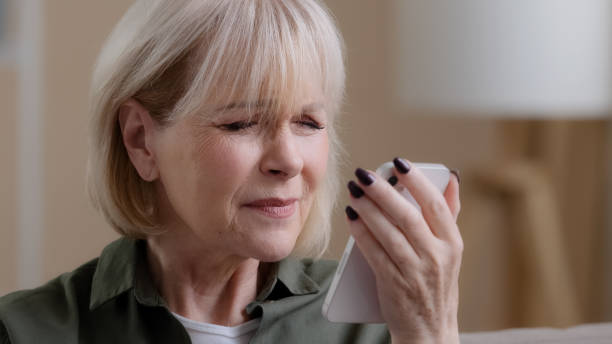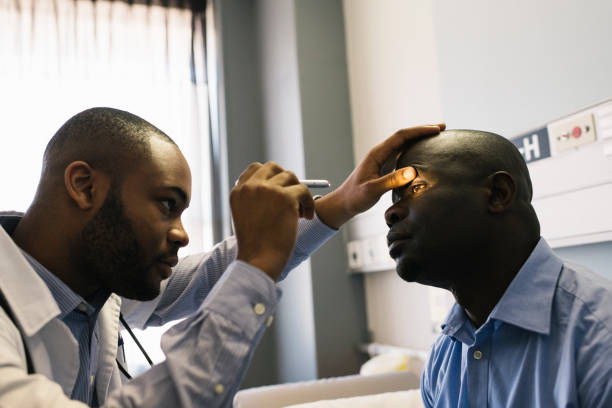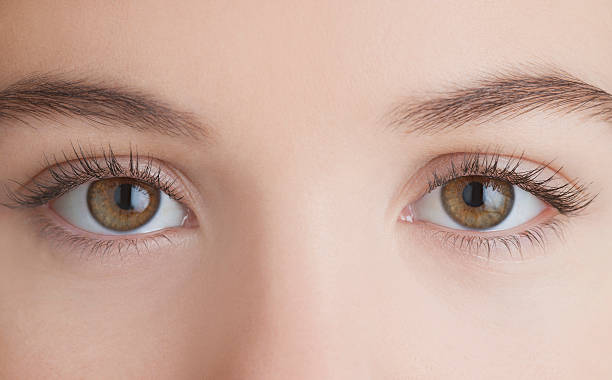When was the last time you really looked into your eyes? Many people think eye exams are only for checking vision, but your eyes are powerful windows into your overall health. They can show changes in your blood vessels, nerves, and even your immune system. Subtle changes—like blurry vision, redness, or unusual spots—can be early warning signs of deeper health problems. Sometimes these signs appear before you notice symptoms in the rest of your body, making your eyes an important clue for early detection.
In this article, you’ll discover the most common signs your eyes may be giving you and what they could mean for your health. From sudden vision loss to yellowing of the eyes, learning to recognize these changes can make a big difference. Spotting these clues early can help you take action, prevent serious complications, and protect not only your eyesight but your overall well-being.
Why Your Eyes Reveal More Than Vision Problems
Your eyes aren’t just about sight. They are deeply connected to your blood vessels, nerves, and even your brain. Because of this, many health conditions—such as diabetes, high blood pressure, thyroid disease, and autoimmune disorders—often show up in the eyes before anywhere else in the body. Changes in your retina, optic nerve, or eye tissue can give doctors an inside look at what’s happening with your circulation, nervous system, and overall health.
Regular eye checkups can sometimes detect health issues before you notice other symptoms, making them an important part of preventive care. For example, an eye exam may reveal early signs of glaucoma, diabetic retinopathy, or even stroke risk. By spotting these red flags early, you can get treatment sooner and avoid serious complications. That’s why paying attention to your eyes—and scheduling routine exams with an eye doctor—is one of the smartest steps you can take to protect both your vision and your long-term health.
Common Eye Symptoms and What They May Mean
Here are some signs to watch for and what they could be trying to tell you.

1. Blurry Vision
Blurry vision doesn’t always mean you need new glasses. It can also be linked to serious health issues, such as:
- Diabetes – High blood sugar can damage the blood vessels in your retina, leading to diabetic retinopathy.
- High blood pressure – This may cause narrowing of the eye’s blood vessels, affecting vision.
- Migraines – Some people experience temporary blurry vision before or during a migraine attack.
If your vision suddenly becomes blurry, seek medical attention right away.
👉 Learn more about diabetes and vision from the American Diabetes Association.
2. Eye Floaters and Flashes
Small spots or flashes of light in your vision are usually harmless, but sometimes they can signal:
- Retinal detachment – A medical emergency that can lead to permanent vision loss if not treated quickly.
- Vitreous detachment – Common with aging, but should still be checked by an eye doctor.
If you see a sudden shower of floaters or flashes, get help immediately.
3. Red or Bloodshot Eyes
Red eyes often come from irritation or allergies, but persistent redness could mean more:
- Dry eye syndrome – When your eyes don’t make enough tears.
- Infections – Such as conjunctivitis (“pink eye”).
- Autoimmune disorders – Conditions like lupus or rheumatoid arthritis can cause chronic redness and discomfort.
Persistent redness should never be ignored.
4. Yellowing of the Eyes
If the whites of your eyes look yellow, it could signal:
- Liver problems – Conditions like hepatitis or cirrhosis cause a buildup of bilirubin, which turns the eyes yellow.
- Gallbladder disease – Gallstones can block bile ducts, leading to jaundice.
This is not just an eye issue—it’s a sign of a serious health concern.
👉 Learn more from the National Institute of Diabetes and Digestive and Kidney Diseases.
5. Dry or Itchy Eyes
Occasional dryness is normal, especially after long screen time. But if it’s constant, it may point to:
- Allergies – Seasonal or environmental.
- Hormonal changes – Common in women during menopause.
- Autoimmune diseases – Like Sjögren’s syndrome, which attacks tear glands.
Using artificial tears may help, but long-term dryness should be checked by an eye specialist.
6. Eye Pain or Pressure
Pain inside or around your eyes should never be ignored. Possible causes include:
- Glaucoma – A disease that damages the optic nerve and may lead to blindness.
- Sinus infections – Can cause pain behind the eyes.
- Injury or foreign object – Even tiny scratches can cause major discomfort.
Sudden, severe eye pain is an emergency.

7. Double Vision
Seeing two images instead of one can be a red flag for:
- Stroke or brain injury – Neurological issues often affect vision.
- Nerve damage – From conditions like multiple sclerosis.
- Thyroid disease – Eye muscles can be affected in Graves’ disease.
Always treat sudden double vision as a medical emergency.
8. Bulging Eyes
Eyes that appear to bulge outward may be linked to:
- Hyperthyroidism (Graves’ disease) – An overactive thyroid that affects eye tissue.
- Tumors or infections – Rare but serious causes.
Bulging eyes often need urgent medical evaluation.
9. Sudden Vision Loss
This is one of the most serious eye symptoms. Possible causes include:
- Stroke – Reduced blood flow to the brain or eye.
- Retinal artery occlusion – A blockage in the blood vessels supplying the eye.
- Detached retina – Requires immediate surgery to prevent blindness.
If vision loss occurs, don’t wait—seek emergency care immediately.
10. Eyelid Drooping
Drooping eyelids, also called ptosis, may mean more than aging. It can signal:
- Neurological problems – Like myasthenia gravis.
- Stroke warning sign – If it happens suddenly with other symptoms like slurred speech.
Everyday Habits That Protect Your Eye Health
Now that you know what signs to look for, it’s just as important to take steps that protect your vision every day. Small lifestyle choices can make a big difference in keeping your eyes healthy for years to come.
- Eat a nutrient-rich diet – Foods like leafy greens, fatty fish, nuts, and colorful fruits are packed with vitamins, minerals, and antioxidants that support eye health. Nutrients such as lutein, zeaxanthin, and omega-3 fatty acids can lower your risk of conditions like macular degeneration and dry eye.
- Protect your eyes from the sun – Wearing sunglasses that block 100% of UV rays shields your eyes from harmful damage that can lead to cataracts, corneal burns, and long-term vision loss.
- Limit digital eye strain – Follow the 20-20-20 rule: every 20 minutes, look at something 20 feet away for 20 seconds. This helps relax your eye muscles, reduce fatigue, and prevent headaches from too much screen time.
- Quit smoking – Smoking damages blood vessels in the eyes and raises the risk of cataracts, glaucoma, and macular degeneration. Quitting improves not only your eye health but your overall health.
- Schedule regular eye exams – Even if your vision seems fine, comprehensive eye exams can detect early signs of glaucoma, diabetes, and other serious conditions before symptoms appear.
Taking these simple steps can protect your vision, lower your risk of disease, and help you enjoy clear, healthy eyesight as you age.
👉 The American Academy of Ophthalmology recommends eye exams every 1–2 years, depending on your age and risk factors.

When to See a Doctor Immediately
Call an eye doctor or go to the ER right away if you experience any of the following symptoms:
- Sudden vision loss or major changes in vision – This could be linked to a stroke, retinal detachment, or blocked blood vessels in the eye. Quick treatment is critical to prevent permanent damage.
- Severe eye pain or headache – Intense pain can be a warning sign of glaucoma, infection, or even a neurological condition that needs emergency care.
- A burst of new floaters or flashes – While a few floaters are normal, a sudden shower of them may signal a retinal tear or detachment, which can lead to blindness without prompt treatment.
- Eyes turning yellow – Yellowing of the whites of the eyes, also known as jaundice, may point to liver disease or gallbladder problems and should be checked immediately.
- Double vision or drooping eyelids – These symptoms can be linked to nerve damage, thyroid disease, or stroke.
These are not minor problems. They could be signs of life-threatening conditions, which is why seeking help quickly is so important. Acting fast can save your eyesight—and in some cases, your life.
Final Thoughts: Listen to What Your Eyes Are Saying
Your eyes are more than just windows to the world—they’re also powerful windows to your overall health. Because they are connected to your blood vessels, nerves, and immune system, your eyes can reveal early signs of problems happening inside your body. From high blood pressure and diabetes to thyroid disease and liver issues, many serious health problems first appear in your vision or eye tissue. Sometimes these changes are so subtle that only a doctor can detect them during an eye exam, which is why regular checkups are so important.
Ignoring these signs can lead to complications such as vision loss, chronic disease progression, or even life-threatening emergencies. But catching them early gives you the best chance to treat the root cause, protect your eyesight, and safeguard your long-term health. Paying attention to your eyes is not just about clearer vision—it’s about protecting your future well-being.
👁️ Take charge of your eye health today. Schedule a comprehensive eye exam, make small lifestyle changes, and stay alert to what your eyes are telling you.
👉 What about you? Have you noticed any changes in your eyes that led to discovering a health problem? Share your experience in the comments below—you never know who you might help.

